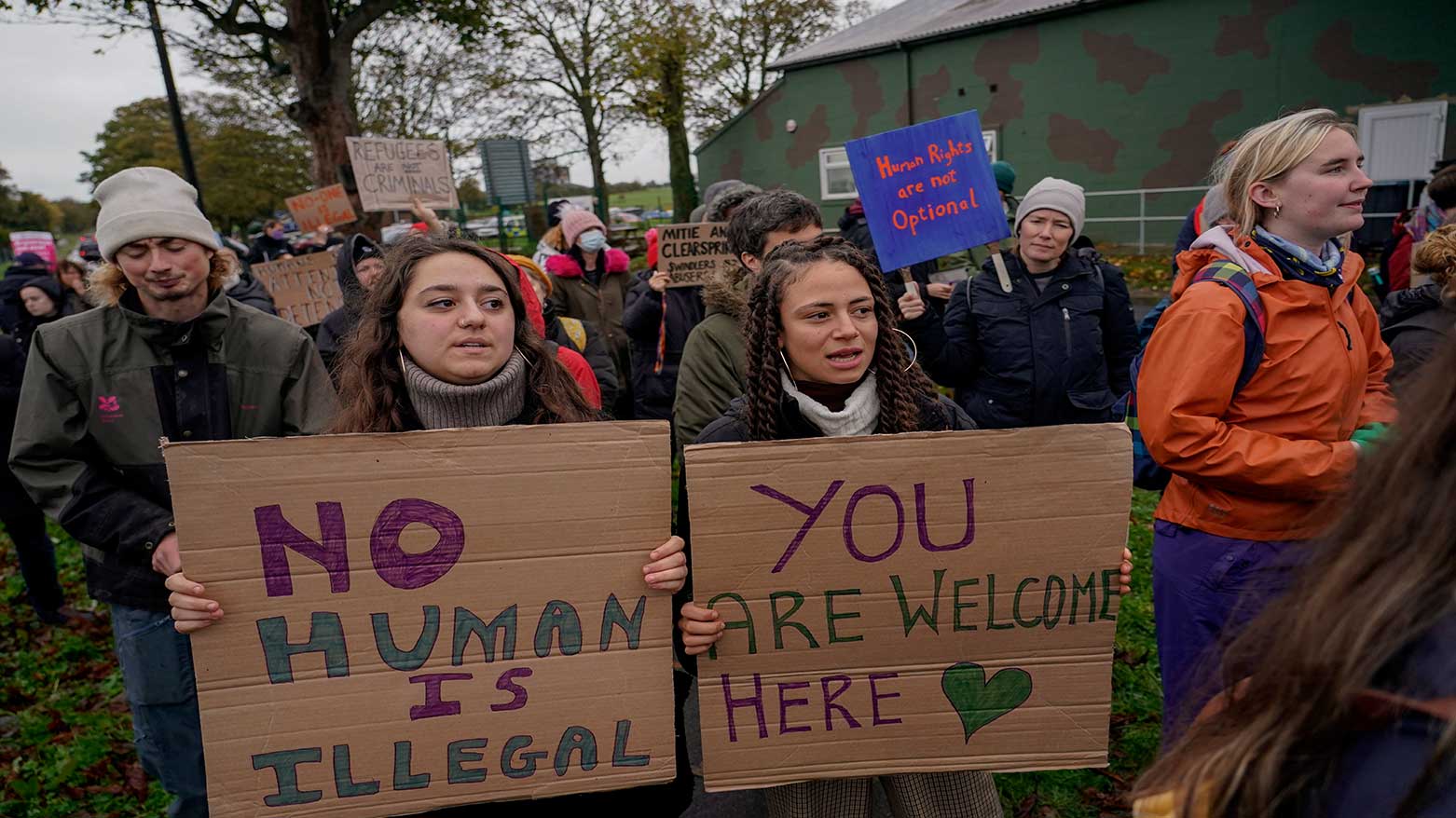UK Moves to Slash Refugee Protections as Labour Faces Pressure From Reform Party Surge
Starmer government unveils Denmark-inspired overhaul of asylum policy, prompting warnings from refugee advocates.

ERBIL (Kurdistan24) — The British government on Saturday unveiled sweeping new restrictions on refugee rights and asylum benefits, marking one of the most far-reaching changes to the country’s migration system in decades. The Labour administration, under Prime Minister Keir Starmer, framed the move as essential to reducing irregular immigration amid rising political pressure from the hard-right Reform UK party.
Home Secretary Shabana Mahmood announced the overhaul late Saturday, vowing to end what she called “the UK’s golden ticket for asylum seekers.” The measures are closely modelled on Denmark’s strict asylum regime and come as Reform UK — led by veteran anti-immigration figure Nigel Farage — has enjoyed a surge in polls throughout 2025, often outpacing Labour by double digits on migration issues.
Under the new plan, refugee status in Britain would be reduced from five years to 30 months and subject to regular review. Refugees would be required to return to their home countries once authorities deem them safe, and the path to long-term residency would be dramatically extended: instead of becoming eligible after five years, refugees would have to wait 20 years before applying for indefinite leave to remain.
The Home Office described the package — to be formally presented to Parliament on Monday — as “the largest overhaul of asylum policy in modern times.” Officials say it is designed to deter irregular migration, speed up removals, and reduce what ministers describe as the pull factors attracting migrants to the UK.
The reforms come at a time when asylum claims have reached record levels. More than 111,000 applications were filed in the year to June 2025, and over 39,000 people have crossed the English Channel in small boats so far this year — surpassing totals for 2024, though still below the 2022 peak. Those crossings have become a central political issue, undermining Starmer’s popularity and reviving support for Reform UK.
A cornerstone of the new policy is the removal of the legal duty introduced in 2005 requiring the government to provide housing and financial support to asylum seekers. Under the proposed system, assistance would become discretionary.
The government could refuse support to asylum seekers deemed capable of working but not doing so, or to those involved in criminal activity.
The Labour government has taken particular interest in the Danish model, whose centre-left leadership has implemented some of Europe’s most restrictive asylum measures. Senior British officials recently visited Copenhagen, where successful asylum claims are at a 40-year low.
Denmark grants refugees only one-year renewable permits and encourages rapid returns once conditions improve in their home countries. Strict rules also govern family reunification, including language tests, age requirements, and financial guarantees.
Mahmood is expected to announce a similar tightening of family reunion rules when she addresses Parliament. But the proposals have drawn immediate criticism from refugee advocacy groups and from Labour’s own left flank, raising the likelihood of intra-party friction.
Enver Solomon, chief executive of the Refugee Council, warned that the measures “will not deter” dangerous Channel crossings and urged the government to reconsider. “They should ensure that refugees who work hard and contribute to Britain can build secure, settled lives and give back to their communities,” he said.
Labour’s more progressive lawmakers are likely to oppose the reforms, arguing that the party risks ceding moral ground — and voters — to the Greens and other left-leaning alternatives.
Yet with immigration dominating national debate and Reform UK capitalizing on public frustration, Starmer appears determined to show that his government can deliver firm border control.
If passed, the reforms would reshape the UK’s asylum landscape for years to come, aligning the Labour government with some of the toughest migration policies in Europe at a moment of intensifying political polarization.
